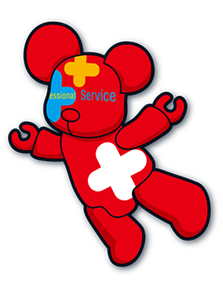Authors (including presenting author) :
Chau RMW(1), Chao CYL(2) , Poon MWY(3), Chan ACM(2)
Affiliation :
(1)Physiotherapy Department, Kowloon Hospital,(2) Physiotherapy Department, Queen Elizabeth Hospital,(3) Physiotherapy Department, HK Buddhist Hospital
Introduction :
Systematic review showed that peer learning addressed professional needs with increased confidence & competence. The peer support & orientation program, adopting the peer-mentoring strategy, was launched in the Physiotherapy Departments of Queen Elizabeth Hospital,Kowloon Hospital,Buddhist Hospital since Jan15 to support & facilitate the integration of newly recruited physiotherapist into workplace. A peer mentor with <3 year work experience of the same hospital,was assigned to the new staff to walk him/her through the adaptation period. The program consists of specific orientation according to the assigned clinical specialty & additional one-on-one mentoring model by peer mentor.
Objectives :
A survey was conducted to evaluate mentors’ & mentee’s view on benefits & barriers of peer mentoring in meeting professional needs & satisfaction.
Methodology :
This was a cross-sectional self-administered user survey. All newly recruited physiotherapists(mentees) in the three hospitals during the period of 1Jan to 31Dec17 were surveyed at time point of approximately 9 to 12 months after work commencement. Mentee’s questionnaire contained 20 statements measuring the perceptive usefulness & appropriateness of the program in 3 domains(job & local environment context, human resources issues & personal needs)presenting with a Likert scale. Respondents were asked to specify their level of agreement to a statement. There was one summary statement for evaluating the overall satisfaction of the program and 2 open-end questions at the end soliciting opinion on areas for improvement & other comment. The mentors’ survey was a self-administered questionnaire consisting primarily of closed-ended questions adopted from Quesnel et al study pertaining to peer mentorship and essential domains related to professional development and psychosocial support.
Result & Outcome :
A total of 18 questionnaires from mentee & 17 questionnaires from mentors(response rate:100%)were included for analysis. All mentee respondents reported positive feedback that the program improved their job understanding; increased their knowledge in human resources issues, and address their personal needs. All mentee respondents were satisfied with the program & agreed that all essential items were covered in the program. Majority of mentors(range 88.2 to 100%) reported positive attitudes toward peer mentorship & ascertained its importance. Barriers reported were inadequate peer mentorship skills(35.3%) & time constraints(35.3%) with corresponding follow-up measures to be developed by department. All mentor respondents were satisfied with the program. Staff retention rate at 12-month post work commencement for mentees was 81% & full for mentors. In summary, staff satisfaction was reported & the program helped to foster positive attitude at early career life in Physiotherapy & possibly staff retention.








